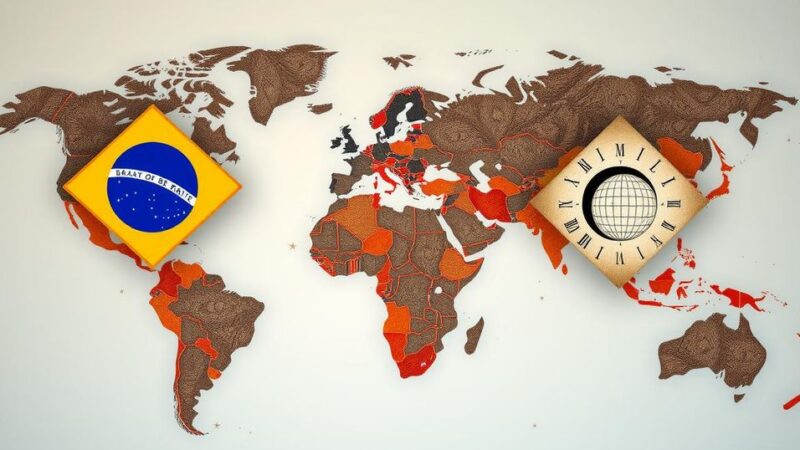The World Bank’s 2024 Equatorial Guinea Economic Update emphasizes the necessity of implementing effective fiscal policies for sustainable forestry and economic diversification in the wake of a 5.7% economic contraction in 2023 due to hydrocarbon sector declines. The report suggests various strategies aimed at enhancing the forestry sector’s contributions to GDP, underscoring the importance of governance, fiscal reforms, and international collaboration.
On October 8, 2024, the World Bank released its 2024 Equatorial Guinea Economic Update, highlighting the pressing need for effective fiscal policies aimed at fostering sustainable forestry and promoting economic diversification. After experiencing a contraction of 5.7% in 2023, primarily due to downturns in the hydrocarbon sector, it is evident that the country’s economy is overdue for robust diversification strategies beyond its current reliance on oil. The decrease in inflation to 2.4% in 2023, a drop from 4.9% in 2022, reflects the successful implementation of tighter monetary policies by the Bank of Central African States (BEAC), the strategic agreement to source food imports from Serbia, and the reduction of certain import tariffs. Equatorial Guinea, which boasts approximately 87% forest cover, has seen troubling trends in deforestation and forest degradation. Despite the forestry sector’s potential to contribute to GDP, its importance has waned since the 1990s, especially due to insufficient local processing capabilities for wood products. Aissatou Diallo, the World Bank’s Resident Representative for Equatorial Guinea, emphasized that fostering a sustainable commercial forestry sector that emphasizes domestic value addition is crucial for both economic diversification and forest preservation. Moreover, the nation’s commitment to sustainable development, as outlined in its national sustainable development plan (AGENDA 2035) and the national REDD+ plan, calls for bolstering domestic revenue generation and enhancing international financial support. Although there has been some increase in international funding for sustainable forest management, current commitments are still inadequate. The World Bank’s report proposes a comprehensive set of solutions to tackle the multifaceted challenges facing Equatorial Guinea’s forestry sector, emphasizing the need for fiscal reforms and sustainable forest management practices. Recommendations include: 1. Developing effective fiscal instruments by adjusting tax rates on timber production, promoting forest certification, and implementing long-term forest management strategies. 2. Enhancing forest governance through improved transparency and traceability of forest products while building a robust local wood-processing industry. 3. Increasing financial and technical assistance from the international community to both conserve forests and promote their role as critical ecosystems. As Djeneba Doumbia, the Country Economist for Equatorial Guinea, aptly stated, “Fiscal policies that support forest preservation and the sustainable use of forest resources, combined with improved forest governance and investment climate, will not only help to improve domestic revenue mobilization, but could also help attract more financing…” Overall, the findings underscore that sustainable fiscal policies, coupled with improved governance and the enhancement of the investment climate, are essential components to mobilizing domestic resources and attracting further investment in Equatorial Guinea’s efforts to achieve a sustainable economic future, particularly in forestry management.
The economic landscape of Equatorial Guinea has historically been centered around its hydrocarbon sector, leading to significant challenges in diversification and sustainable development. In recent years, despite a brief recovery period, the economy has faced contraction. The insights provided in the World Bank’s Economic Update highlight the critical condition of the forestry sector, illustrating the necessity for fiscal reforms to revitalize forestry as an economically viable and sustainable sector. Given the extensive forest coverage in the country, it is essential to develop policies that ensure the protection of these vital ecosystems while also leveraging them for economic stability and growth.
The World Bank’s 2024 Economic Update for Equatorial Guinea elucidates the urgent need for effective fiscal instruments to enhance sustainable forestry and drive economic diversification. With an economy heavily reliant on the hydrocarbons sector, it is imperative to adopt policies that promote sustainable development and forest preservation. The report’s recommendations for fiscal reforms, improved governance, and increased international support are pivotal in addressing the current challenges within the forestry sector and positioning Equatorial Guinea for a more sustainable economic future.
Original Source: www.miragenews.com







